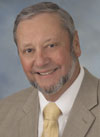 Wisconsin Lawyer
Wisconsin Lawyer
Vol. 83, No. 3, March 2010

John Doe (not his real name) has been a client of this office for 30 years. He married for the first time at about age 70 to a widow with two adult children. He owns a farm and she owns a farm, and we have drafted several wills for them and helped them with real estate transactions over the years.
Then one fine day in 2009, they received a postcard that told them they could avoid probate. All they had to do was call the 800 number. Shortly thereafter a well-dressed and well-spoken man showed up at the door and told them all about how they could avoid probate and paying “death taxes.”
When the dust settled they had the most beautiful leather-bound folder you ever saw. There was a section where they could write final notes to their best friends and family members. There was a section where they could write comments to their pets. There were pages for writing down their grandchildren’s birthdates and the phone numbers of all their care providers. And, of course, there was a lovely inter vivos trust of about 20 pages in length. It provided the same things that their wills (which I had drawn) provided. It also was accompanied by a nice letter giving them rough descriptions on how to put assets into the trust but clearly stating that the trust provider was not undertaking the responsibility to actually get things into the trust. They were sent back to me by the local title agent, whom they had contacted to draft deeds for them to get their farms into the trust.
This trust was fully revocable during the lifetime of either of the settlors. (The wife was worried that her farm would pass to her husband, he would change his will, and the farm would end up in the hands of his nephews. She was appalled to learn that the new trust still allowed that to happen!) Not to be tedious, but the trust provided for as many as two subsequent trusts, one as a “bypass” to save money on inheritance tax (their combined estate was not even close to being taxable), and a “spousal trust” that was a restatement of the original trust, and could be funded by “disclaimer.” (Any possible benefit of the spousal trust was beyond my humble understanding.)
Their wallets were lightened by $2,900 for this wondrous leather book. They were just sick to learn that they had gotten nothing (but a mess) for their money.
When I look at the complicated and intricate professional ethics rules lawyers face every day, I wonder what we are really accomplishing. The phony practitioners of the law are not regulated, licensed, or answerable to anyone. Our entire ethics structure is to protect clients, and yet fails to protect them from the real menace: My farm couple enjoyed no protection from the quacks.
The bar is finally doing something! The State Bar of Wisconsin has a petition before the Wisconsin Supreme Court to define what it means to “practice law” so that we can proscribe the practice by unqualified lay practitioners and, of course, by charlatans.
I realize there are gray areas: Bankers want to draft mortgages. CPAs want to fill out tax forms. Realtors want to draft offers and counter offers. But these are all professionals, certified and licensed within their fields. Their limited practice of law is no threat to the public. And the supreme court will doubtless allow that “practice” – the State Bar has asked for nothing to interfere with our fellow professionals.
But this does not mean that every con man and mountebank must be allowed to prey on the public with impunity. These quacks must be stopped!
The supreme court heard our petition on March 8. As of this writing I do not know the outcome. But if we are given a definition of what constitutes “the unauthorized practice of law,” we will have the basic tool we need to prohibit such practice through legislation or enforcement of existing law. Hopefully, by the time you read this, the critical first step will have been taken.
For more information on how the unauthorized practice of law in Wisconsin harms consumers, please visit www.wisbar.org/upl.
Wisconsin Lawyer
